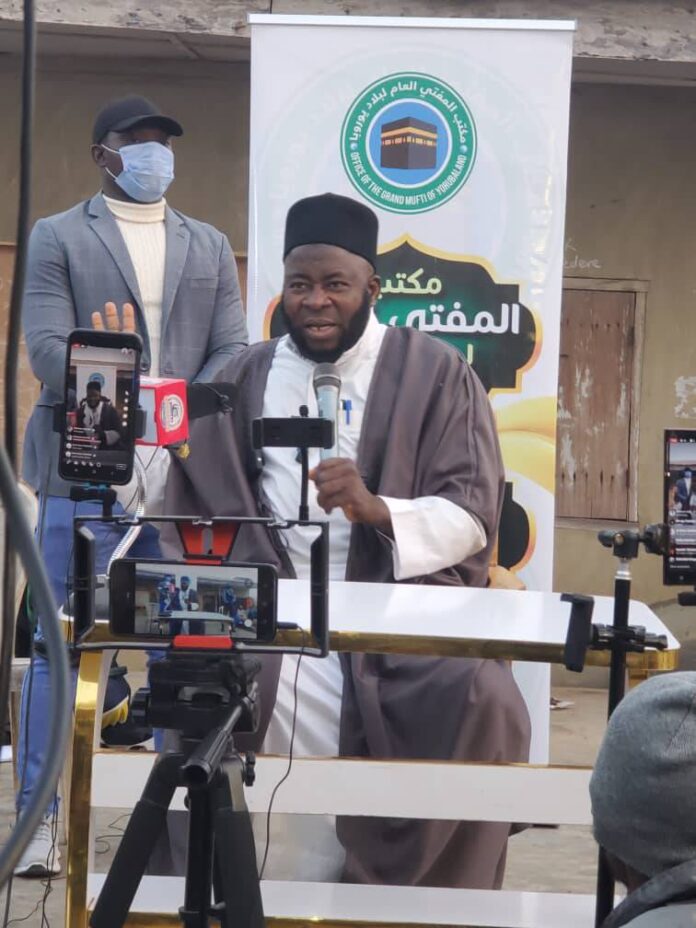A recent declaration by Sheik Dawood Malaasan, the Mufti of Iwo, has ignited a storm of controversy across the Yoruba region. In a widely circulated video, the cleric passionately advocated for the establishment of Sharia courts in Oyo State, while warning of imminent plans to expand the initiative to neighboring Osun State.
The video, which has gone viral, shows Sheik Malaasan using inflammatory language to address opponents of the proposed Sharia courts. “To those of you in Oyo State who dare oppose the Sharia court, you should know that your mothers were not born well,” he declared. He went on to caution dissenters against public criticism, warning of “a flood of consequences” for those who spoke out against the initiative.
Sharia Law and the Constitution
Sheik Malaasan argued that Sharia law, as practiced in Nigeria, operates within the confines of the nation’s constitution and applies only to Muslims. “We are not using Sharia on non-Muslims but only Sharia law in the Nigerian constitution that everyone agreed on,” he said. The cleric also insisted that even if the Yoruba region were to achieve independence, demands for Sharia law would persist.
Citing religious and constitutional rights, the cleric further announced plans to introduce a Sharia council in Osun State. “Be expecting Sharia Council in Osun too; it is underway,” he stated.
Public Reactions
The cleric’s statements have sparked a divided response. While some Muslims in the region see the move as an assertion of their religious rights, others worry about the potential for divisiveness and conflict. Critics argue that such initiatives could alienate non-Muslims and exacerbate religious tensions in the predominantly Yoruba region, which has a mix of Christians, Muslims, and adherents of traditional religions.
A political analyst in Ibadan, Adebayo Ogundele, described the cleric’s comments as “reckless and capable of inciting unrest.” Ogundele emphasized the need for religious leaders to promote unity, rather than stoke division. “While Sharia law may have its place among Muslims, any attempt to impose it in a way that alienates others will only lead to discord,” he said.
Governor Makinde Weighs In
In response to the controversy, Oyo State Governor Seyi Makinde addressed concerns about the Sharia court proposal. He reaffirmed his administration’s commitment to upholding the Nigerian constitution, stating, “If it is against the constitution, it will not be allowed to stand.”
Makinde’s measured stance has been praised by some as an attempt to balance religious freedom with constitutional law. However, others have called for stronger condemnation of Sheik Malaasan’s rhetoric.
Broader Context of Sharia Law in Nigeria
Sharia law has long been a contentious issue in Nigeria, a nation of over 200 million people divided almost evenly between Christians and Muslims. While Sharia courts operate in many northern states, their introduction in the southwest has historically been met with resistance.
Experts point out that Sharia courts in Nigeria primarily handle matters of personal law, such as marriage, inheritance, and custody, for Muslims who voluntarily submit to their jurisdiction. However, critics worry about the potential for overreach and the marginalization of non-Muslim communities.
Dr. Zainab Yusuf, a lecturer in Islamic Studies at the University of Lagos, explained, “Sharia is meant to coexist with the secular legal system in Nigeria. It is not intended to replace or undermine the nation’s constitution. However, its implementation must be done with sensitivity to the diverse religious makeup of the country.”
Implications for Osun State
The announcement of plans to establish a Sharia council in Osun State has raised questions about the cleric’s influence and the state government’s position on the matter. While Osun has a significant Muslim population, it is also home to many Christians and traditionalists, making the introduction of Sharia courts a potentially polarizing issue.
Civil society groups in the state have already begun mobilizing to resist what they see as an imposition. “We cannot allow Osun to become a testing ground for divisive religious policies,” said Oladipo Akinwale, a leader of the Osun Unity Forum.
As the debate continues to rage, calls for dialogue and mutual respect have grown louder. Religious leaders, traditional rulers, and political stakeholders are being urged to engage in constructive discussions to prevent the situation from escalating into a full-blown crisis.

